LATEST NEWS


Is the full-time American job going the way of the dodo? The signs aren’t exactly heartening.
Consider the jobs report released Friday [July 5]. The United States added 195,000 new jobs in June, it said, including 322,000 new part-time jobs — a number that comprises only part-timers who want full-time work but can’t find it. Assuming my grade-school arithmetic skills haven’t completely eroded, that suggests that the number of full-time jobs actually declined.
Critics of Obamacare have a ready explanation: The 30-hour-a-week cutoff of the now-postponed employer mandate — which requires many employers to either provide health-care coverage for employees who work at least that much or to pay a penalty — was compelling employers to reduce workers’ hours. That mandate, the Wall Street Journal editorialized, gave businesses “an incentive to hire more part-time workers.”
If the employer mandate really were the problem,
» Read more about: The Full-Time Worker: A Vanishing American »


Ever since the emergence of talking pictures, schools have been a major subject of both Hollywood movies and documentary films. One consistent theme of Hollywood portrayals of schools – from Blackboard Jungle (1955), Up the Down Staircase (1967) and Stand and Deliver (1988) to Mr. Holland’s Opus (1995), October Sky (1999) and Freedom Writers (2007) – has been the idealistic teacher fighting to serve his and her students against overwhelming odds, including uncaring administrators, cynical colleagues, a stultifying required curriculum that crushes the spirit of teachers and students alike, dilapidated conditions, budget cuts, unruly and hostile students, or students suffering from the symptoms of poverty or neglect. The underlying message is that while occasionally a rare teacher can light a spark in a few students, our public schools are failing most of the students they are supposed to serve. Most documentaries about education –
» Read more about: A Harsh Schooling: The War Against Public Education »
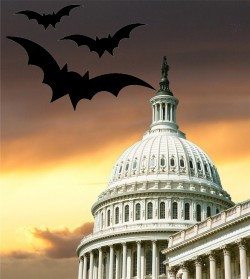

Before January 2009, the filibuster was used only for measures and nominations on which the minority party in the Senate had their strongest objections. Since then, Senate Republicans have filibustered almost everything, betting that voters will blame Democrats for the dysfunction in Congress as much as they blame the GOP.
So far the bet is paying off because the press has failed to call out the GOP – which is now preventing votes on the President’s choices for three D.C. Circuit Court nominees, the Labor Department and the EPA, the Consumer Finance Protection Bureau, and the National Labor Relations Board. (The GOP has blocked all labor board nominees, some to whom the President gave recess appointments, but he’s now asking approval for all.)
The GOP has already violated hundreds of years of Senate precedent by filibustering the nomination of a Cabinet secretary, Chuck Hagel for Secretary of Defense, and using the filibuster to delay John Brennan’s nomination as CIA Director.
» Read more about: Clinton Official: New GOP Hates Government and Governing »


I am a tipped worker at a restaurant, so according to Illinois law I only have to be paid 60 percent of the minimum wage, or $4.95 an hour. I am a single mother with a five-month-old son. I am worried because with the economy going so badly, people aren’t eating out as much or tipping as much. If things get worse and I can’t rely on my tips, then I am going to need to use things like food stamps. I am not able to save any money because I am living paycheck to paycheck, so if something unexpected happened I wouldn’t know what to do. We need this new law to raise the minimum wage because it would change the law for tipped workers so that they would get 100 percent of the minimum wage. We shouldn’t have to depend on something as unreliable as tips to survive.
» Read more about: Paycheck to Paycheck: Minimum Wage Stories »


Governor Jerry Brown signed into law Thursday the “Governor’s Economic Development Initiative,” which radically overhauls California’s troubled Enterprise Zone program. The signing took place in San Diego at the headquarters of Takeda California, a pharmaceutical company. State legislature backers of the new program, which consists of Assembly Bill 93 and Senate Bill 90, say it will stimulate economic activity and create good jobs for Californians via a three-pronged approach.
The first prong is a sales tax exemption on research and development equipment purchases for biotechnology and manufacturing firms. The second is a series of credits given to businesses that hire in regions with high unemployment and poverty rates. Finally, the initiative allows for California business to gain tax credits based on the quality and quantity of jobs they create.
The governor said he has supported this legislation in order “to help grow our economy and create good manufacturing jobs,” with a focus on building “the strength of intellectual capacity.”
» Read more about: Governor Signs Overhaul of Enterprise Zone Program »


In my post last week, after the announcement that the employer mandate would not be enforced for a year, I wrote that it was vital that the Obama administration show as much concern for the workers who might be denied health insurance as it did for employers. Specifically, I asked the administration to make clear that a worker would be able to get subsidized health coverage through the new exchanges based on filling out an application, without having to get proof from an employer. On Friday [July 5, the Department of Health and Human Services] issued that ruling.
The decision not to enforce the employer mandate for a year is certain to cost some people health coverage as some employers decide to postpone complying with the law. Their workers, possibly also confused by the delay, may not apply for subsidized coverage. But if they do apply, the new ruling will be a big help to them.
» Read more about: How Obamacare Mandate Delay Helps Workers »


You’ve probably heard it from a colleague, or maybe from a friend or family member:
“Kids these days… they’re just too ambivalent to care about labor unions or workers’ rights.”
But as it turns out, that’s just not true. Young people are actually big fans of unions. Fully 61 percent of young people view labor unions favorably – and that’s more than 10 points higher than the national average, according to a new Pew poll. In fact, young people are the only age group that views unions more favorably than they view corporations.
But despite the overwhelming support young people have for unions, they’re far less likely to belong to one. Harold Meyerson writes in the American Prospect:
The irony for unions —and in theory, the opportunity—is that the youngest Americans are the least unionized.


Helicopters hover like hellish hogs
of Armageddon:
an infra-red shakedown.
We are the enemy, the face on the radio;
burnt petals cluttering the sidewalk.
We are daylight’s demise, dancing between
discord & distrust. All is bitter harvest,
betrayal and bewilderment;
all is seed for the fields of retreat:
bullets punctuate every poem.
——————————————————–
Source: Trochemoche, published by Curbstone Press (1998).
Luis Rodrίguez has won numerous awards for his poetry, including the Poetry Center Book Award, a PEN Josephine Miles Literary Award, and a Paterson Poetry Book Prize. He is best known for the 1993 memoir of gang life, Always Running: La Vida Loca, Gang Days in L.A. (paperback by Touchstone Books/Simon & Schuster).


Tomorrow the fate of Chinatown residents and small businesses will be decided by the Superior Court. For the past 18 months, Chinatown residents and community activists across the city have been fighting Walmart’s attempt to open a grocery store in the historic downtown neighborhood. Now a judge will weigh the right of Asian-American communities to have a voice in what is built in their neighborhoods versus a multinational corporation’s ability to open just one more store. The lawsuit filed by the Asian Pacific American Labor Alliance (APALA) and its allies seeks to nullify the building permits granted to Walmart by L.A. city officials.
As we at APALA prepare for the trial, I have been reflecting on our civil rights and labor struggles in the Asian-American community. It’s the same battle that Chinatown residents fought against Union Station displacement and that Japanese Americans fought to reclaim Little Tokyo in the wake of internment camps and recent gentrification.


Judy West is a founding member and current president of Local 741 of the American Federation of State, County and Municipal Employees union (AFSCME). She also works for the Los Angeles Department of Recreation and Parks as a recreation assistant and teaches “parent-and-me” classes. The department’s only fulltime employees are its directors and other administrators – assistants like West work halftime. Frying Pan News reporter Luke Dowling sat down with her to talk about the state of unions in Los Angeles.
Frying Pan News: Tell me a little about yourself and how you came to be president of AFSCME Local 741.
Judy West: I was one of its organizers and was treasurer for a while, then became president. We had nothing before we organized. When a union rep came in and said, “We’ve been asked by different rec assistants to organize a union,” I said, “You got me!


You get the basics in high school. The federal government is divided into three branches (executive, legislative, judicial). Locally you’ve got the mayor and the city council. Etc. Most of us don’t graduate with enough knowledge so that as adults we truly grasp how even the most well-known governmental power structures really work (what percentage of Americans can actually explain the Electoral College?), let alone more obscure power centers.
The Long Beach Coalition for Good Jobs and a Healthy Community is aiming to redress this lack of knowledge through a series of Power Analysis Workshops (or PAWs), which the coalition says are intended “to build collective knowledge of the power of local government [, …] of where branches of government get their power, how they impact the community and how residents can ensure local government works for all residents.”
“It’s important that all residents are engaged in the political process and understand how the decisions their representatives make impact their daily lives,” says Christine Petit,
» Read more about: Teaching the ABCs of Power in Long Beach »


An old friend I’m back in touch with thanks to Facebook loves to rail against Facebook — on Facebook. When our electronic bond progressed to a real-world lunch, he lamented that he had joined Facebook for its networking promise, but has become unnerved by a growing sense that his Facebook Page belongs not to him but to, yes, Facebook.
I could relate. A bizarre posting or a stealth ad on Facebook can trigger a flash of disorientation. Does it emanate from a friend, a friend of a friend, a mutual friend, a frenemy posing as a friend, someone I “should get to know” or a multi-national corporation? How did those unflattering pictures of me insinuate themselves, unbidden, into my profile? And how can it be that I’m now, at this precise instant, listening — “on Spotify” — to a song I’ve never heard of?
It might be satisfying for counter-culture types to blow off steam by rebelling against a mega-corporation that markets itself as the hip vanguard of the communications revolution to mask its true establishment-promoting,


In a far-reaching victory for hotel workers, a new labor agreement has been reached between the national Hyatt hotel chain and UNITE HERE, which represents Hyatt workers in Los Angeles, San Francisco, Hawaii and Chicago. The accord caps a long, tenacious fight by the union. In a memo emailed to union affiliates, UNITE HERE national president D. Taylor thanked union activists and elected leaders whose efforts over the last two years have led to “substantial wage increases and quality health and pension benefits.”
The two sides issued this joint statement last week:
National Agreement
Today Hyatt Hotels Corporation and UNITE HERE, the union of hospitality workers in the U.S. and Canada, announced a national agreement that resolves longstanding disputes between the two organizations. The agreement creates a framework for the company and the union to work together moving forward. Both UNITE HERE and Hyatt hailed the pact as a positive step.
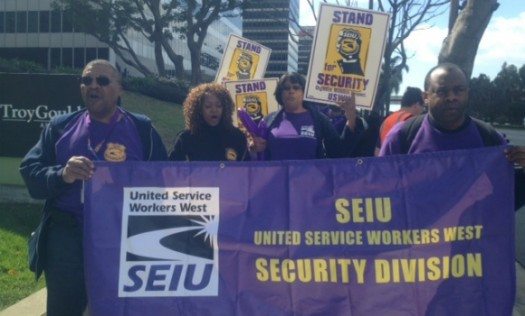

Gallup and Pew concur: Just over one-half of Americans approve of labor unions.
In late June, the Pew Research Center released the results of its biennial poll on unions and corporations, and reported that 51 percent of Americans had a favorable view of unions—up from just 41 percent in 2011, the last time Pew popped the question. Pew’s new number is almost identical to Gallup’s, which found that 52 percent of Americans approved of unions when it last asked that question in August of 2012. Gallup polls on union approval every year and has reported a 52 percent approval rating each of the past three years. Before then, union approval had hit an all-time low for Gallup surveys, with just 48 percent in 2009.
(This post first appeared on the American Prospect and is republished with permission.)
» Read more about: New Polls Show Rising Approval of Unions »
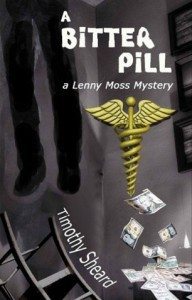
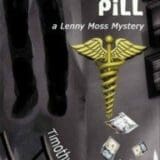
(Spoiler Alert: The last paragraph of this review of Timothy Sheard’s novel, A Bitter Pill, reveals plot endings.)
When a business-oriented company takes over the management of the James Madison Medical Center in Philadelphia, Pennsylvania, it is immediately clear that things are about to change, and not for the better. The sudden appearance of the Committee to Save James Madison – supposedly established by a group of disgruntled employees who don’t think the union has their best interests at heart, but in actual fact created by Croesus Health Care, the new owners of the hospital – is the first clue that the bosses are eager to crush the workers’ organization, fire staff and focus on the bottom line, service delivery be damned. In short order, everyone’s work life is turned upside down as a petition drive to decertify said union to “save jobs” leads to mayhem, murder and more.
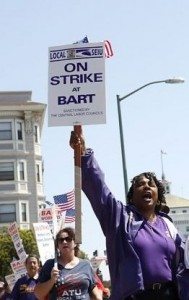
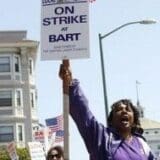
While a new labor contract is still being negotiated, SEIU 1021 and ATU 1555 have already won the 2013 BART strike. Prior to last week, both unions faced an untenable choice: Accept another round of concessions demanded by BART [Bay Area Rapid Transit] or risk alienating hundreds of thousands of BART riders by closing down the system. A successful strike would not be easy. It required rank and file solidarity, and the building of a strong community-labor coalition. It also meant withstanding an anti-union media blitz that framed the conflict as between a BART management that cared about riders and taxpayers, and a union workforce that only cared about “selfish” goals.
But as the dust from the strike clears, it is BART management that is under pressure to improve its offer. Both unions resume negotiations in a much stronger position than before the strike, and retain the option of striking again should BART still refuse to negotiate in good faith.
» Read more about: BART Managers Got Free Media Pass During Strike »


A basic economic principle is government ought to tax what we want to discourage, and not tax what we want to encourage.
For example, if we want less carbon dioxide in the atmosphere, we should tax carbon polluters. On the other hand, if we want more students from lower-income families to be able to afford college, we shouldn’t put a tax on student loans.
Sounds pretty simple, doesn’t it? Unfortunately, congressional Republicans are intent on doing exactly the opposite.
Earlier this year the Republican-led House passed a bill pegging student-loan interest rates to the yield on the 10-year Treasury note, plus 2.5 percentage points. “I have very little tolerance for people who tell me that they graduate with $200,000 of debt or even $80,000 of debt because there’s no reason for that,” Rep. Virginia Foxx (R-NC), the co-sponsor of the GOP bill, said.
Republicans estimate this will bring in around $3.7 billion of extra revenue,
» Read more about: Conservatives: Tax Students, Not Polluters »

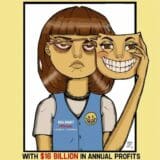
I recently had the privilege of attending a banquet recognizing Walmart workers who have dedicated themselves to winning policy changes that affect the way they are treated by this retail giant. The event was held at the First AME Church of Los Angeles, which has been in the forefront of fighting for civil rights and social justice.
Many stories shared by the workers reflected the nightmare that is their Walmart employment experience. One very nervous young woman spoke of being seriously injured when luggage from a storage rack fell on her back. Her supervisors refused to administer medical attention or even call for an ambulance; she had to drive herself to a hospital.
There are warehouse workers at subcontracted facilities who find themselves working in trailers whose temperatures reach more than 100 degrees – such workers are faced with limited water availability and supervisors who don’t permit frequent breaks for employees to cool down.
» Read more about: Walmart Employees Recount Grim Working Environment »
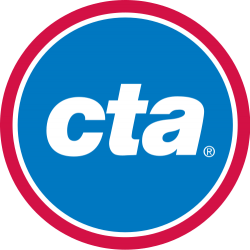

(The following post originally appeared on the blog for Next City, “a non-profit media organization dedicated to connecting cities and informing the people who work to improve them.”)
Chicago labor groups are pissed. And they have a right to be. The Montreal-based company Bombardier Transportation was awarded a $1.14 billion contract to build more than 700 train cars for the Chicago Transit Authority, and the local workforce has been left out.
The greater Chicago area and Illinois were cut out of thousands of jobs on this public project, according to the Chicago Tribune, and nine labor and community groups have written a letter calling on the CTA to change the procurement process and include a requirement for local job creation for the next batch of rail cars — 846 cars to the tune of roughly $2 billion — set to be built over the next decade.
» Read more about: Chicagoans Say: Follow L.A. Metro’s Employment Plan »


The upcoming Major League Baseball All-Star Game will be the first hosted by the New York Mets since 1964, reminding me that following the All-Star break that same year, my St. Louis Cardinals staged one of the most thrilling comeback stories in baseball history.
I say “my Cardinals” because during my adolescence in Lawn Guyland, my friends and I lived and died by the clubs we followed. For us, the glories and the tragedies of the Cards, Don’s Dodgers, Josh’s Braves, Peter’s Giants and Lenny’s Yankees were as intense as the ups and downs of our relationships with our girlfriends. If we’d had girlfriends, that is.
In September of 1964, with just 12 games to go, we (always “we,” never “they”) were 6.5 games behind the Philadelphia Phillies, whose notorious Philly Phold — the team lost 10 in a row — led to an extraordinary final two days with four teams still in the race.
» Read more about: House of Cards: A Pennant Race Remembered »